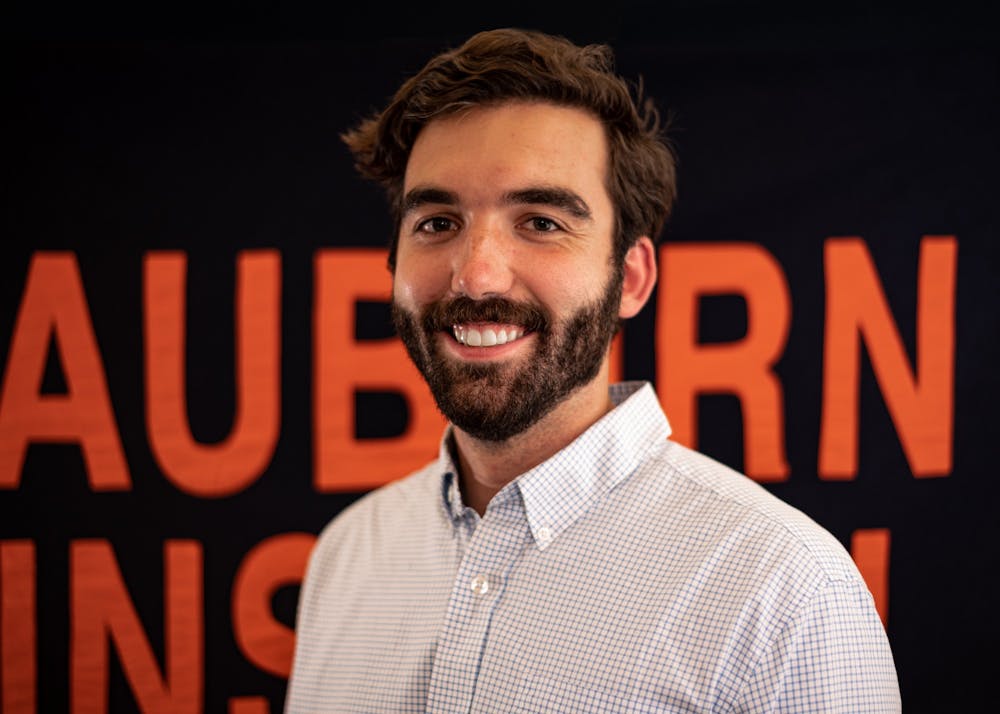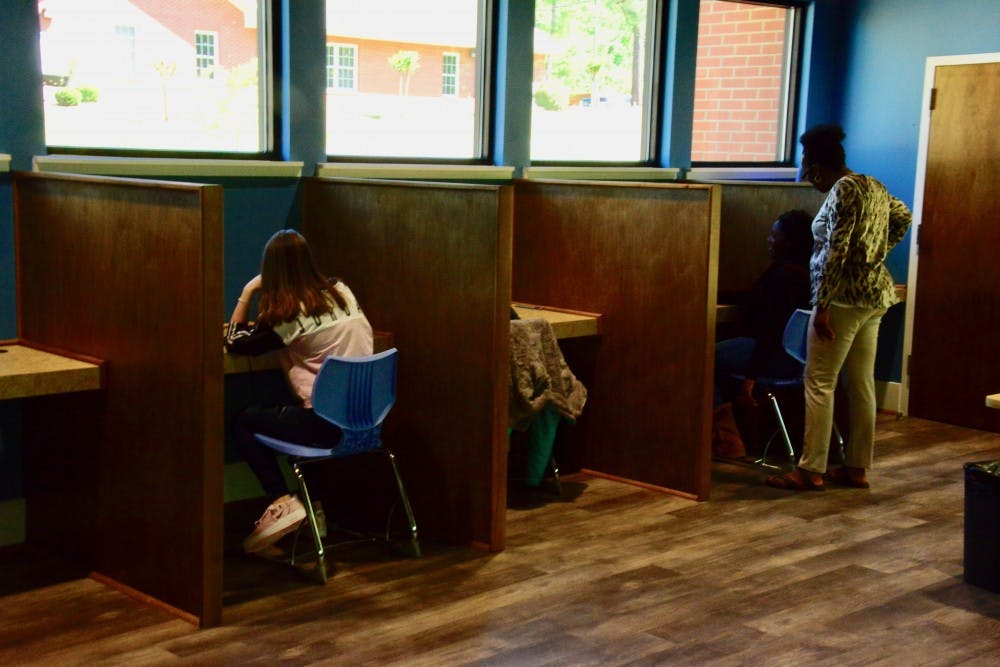The Chanticleer Learning Center is an accredited educational institution on the campus of the Lee County Youth Development Center, a residential facility for youth in foster care. There are approximately 83 students at Chanticleer, ranging from fifth grade to post-graduates, all of whom are residents of LCYDC.
Also under the administration of the Chanticleer Learning Center is the Chanticleer Day School, an alternative school for students of Lee County who are not residents of LCYDC.
“We don’t have all of the extra resources that they would in a public school,” said Ku’Wonna Ingram, administrator of the Chanticleer Learning Center. “You know, if they have somebody with some disruptive behaviors, they just have to pick up the phone. We’re the phone.”
Most residential students at the learning center don’t have anywhere else to go. For students at the day school, it is often their last chance for education before expulsion.
But rather than seeing Chanticleer as a dead end, Ingram sees hope for these students through their education as the way to reduce recidivism and open new doors.
The school is equipped with all the things other schools have, like smart boards, computers, tablets and a library where students can do research, study or read for fun. Students attend art and physical education classes, learn college readiness and employment skills and can serve on the Junior Advisory Board, which is the voice of the student body. They take field trips and have opportunities to volunteer and go to church off campus.
To Ingram, everything done at the learning center is working towards the same goal: graduation. Getting students to reach graduation can be a challenge, however, because of a variety of factors.
“A lot of our kids endure so much trauma,” Ingram said. “Sometimes they get the short end of the stick, and they have a lot of issues with trust, and loss, and grief.”
Working with students who have these experiences creates a different learning environment, and teachers there face challenges as well as opportunities that those in public schools do not.
Students at Chanticleer sometimes have gaps in learning compared to their public school peers, but small class sizes allow the teachers to target students’ specific learning styles to get them back up to speed and on the right track.
“I think as far as an educator, the look is the same. Passion is different,” said Krista Collins, a former teacher at both Chanticleer Learning Center and Auburn High. “You have to be passionate about what you do here, because every day is different.”
Collins currently serves as the operations manager of special ed services. She says she left the public school system after 10 years to teach at Chanticleer because of a desire to help others, and the way to do that is to be available wholeheartedly to her students.
Ingram recounted a story of when Collins called her at 9 p.m., explaining that a student was acting out because that student was living on the street.
That student was then moved from the day school to the residential program at LCYDC, and since then, the student has excelled and even received awards from the county, Ingram said.
But many stories like this one do not end the same way; students’ hardships outside the classroom can often go unnoticed, and they may never get the help they need, Ingram explained.
Hearing of students who don’t know where their next meal is coming from, and who are often working all night to provide for their families, is common at Chanticleer.
“They can’t focus on school for trying to figure out how they’re going to feed their families,” Ingram said.
But people can no longer ignore students’ backgrounds and experiences, Ingram said.
She said that for staff, the goal is to help put students’ pasts into a place where they can use them as motivation, propelling them instead of keeping them back.
Every day at Chanticleer is a different experience for the teachers, therapists, administration and other staff working there.
“I just want people to know that we love children,” Ingram said. “Anything that we can do as an institution to make their lives better, stimulated and enriching, that’s why we’re here. That’s our mission.”
Volunteers from Auburn University and the community can help tutor or serve the students and residents in another way. For more information, visit Lee County Youth Development Center’s website at lcydc.org.
Do you like this story? The Plainsman doesn't accept money from tuition or student fees, and we don't charge a subscription fee. But you can donate to support The Plainsman.

Evan Mealins, senior in philosophy and economics, is the editor-in-chief of The Auburn Plainsman.





